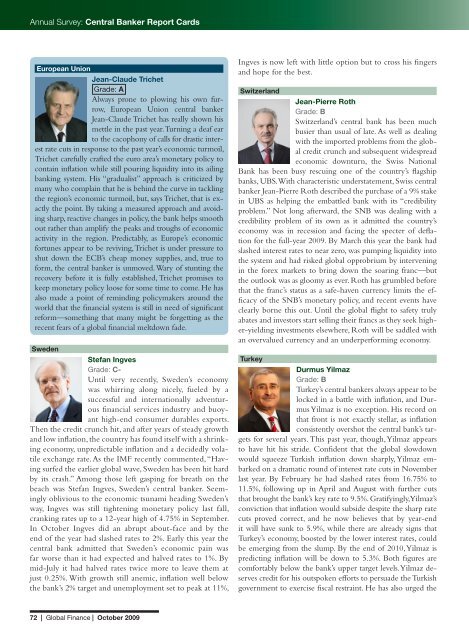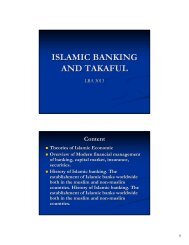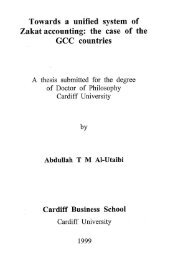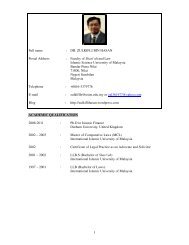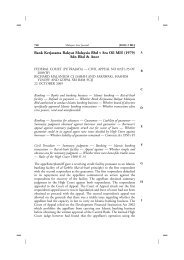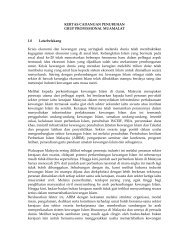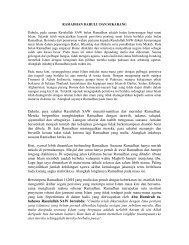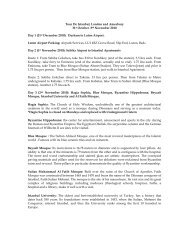The Central Bankers Report 2009
The Central Bankers Report 2009
The Central Bankers Report 2009
- No tags were found...
Create successful ePaper yourself
Turn your PDF publications into a flip-book with our unique Google optimized e-Paper software.
Annual Survey: <strong>Central</strong> Banker <strong>Report</strong> CardsEuropean UnionJean-Claude TrichetGrade: AAlways prone to plowing his own furrow,European Union central bankerJean-Claude Trichet has really shown hismettle in the past year. Turning a deaf earto the cacophony of calls for drastic interestrate cuts in response to the past year’s economic turmoil,Trichet carefully crafted the euro area’s monetary policy tocontain inflation while still pouring liquidity into its ailingbanking system. His “gradualist” approach is criticized bymany who complain that he is behind the curve in tacklingthe region’s economic turmoil, but, says Trichet, that is exactlythe point. By taking a measured approach and avoidingsharp, reactive changes in policy, the bank helps smoothout rather than amplify the peaks and troughs of economicactivity in the region. Predictably, as Europe’s economicfortunes appear to be reviving, Trichet is under pressure toshut down the ECB’s cheap money supplies, and, true toform, the central banker is unmoved. Wary of stunting therecovery before it is fully established, Trichet promises tokeep monetary policy loose for some time to come. He hasalso made a point of reminding policymakers around theworld that the financial system is still in need of significantreform—something that many might be forgetting as therecent fears of a global financial meltdown fade.SwedenStefan IngvesGrade: C-Until very recently, Sweden’s economywas whirring along nicely, fueled by asuccessful and internationally adventurousfinancial services industry and buoyanthigh-end consumer durables exports.<strong>The</strong>n the credit crunch hit, and after years of steady growthand low inflation, the country has found itself with a shrinkingeconomy, unpredictable inflation and a decidedly volatileexchange rate. As the IMF recently commented, “Havingsurfed the earlier global wave, Sweden has been hit hardby its crash.” Among those left gasping for breath on thebeach was Stefan Ingves, Sweden’s central banker. Seeminglyoblivious to the economic tsunami heading Sweden’sway, Ingves was still tightening monetary policy last fall,cranking rates up to a 12-year high of 4.75% in September.In October Ingves did an abrupt about-face and by theend of the year had slashed rates to 2%. Early this year thecentral bank admitted that Sweden’s economic pain wasfar worse than it had expected and halved rates to 1%. Bymid-July it had halved rates twice more to leave them atjust 0.25%. With growth still anemic, inflation well belowthe bank’s 2% target and unemployment set to peak at 11%,Ingves is now left with little option but to cross his fingersand hope for the best.SwitzerlandJean-Pierre RothGrade: BSwitzerland’s central bank has been muchbusier than usual of late. As well as dealingwith the imported problems from the globalcredit crunch and subsequent widespreadeconomic downturn, the Swiss NationalBank has been busy rescuing one of the country’s flagshipbanks, UBS. With characteristic understatement, Swiss centralbanker Jean-Pierre Roth described the purchase of a 9% stakein UBS as helping the embattled bank with its “credibilityproblem.” Not long afterward, the SNB was dealing with acredibility problem of its own as it admitted the country’seconomy was in recession and facing the specter of deflationfor the full-year <strong>2009</strong>. By March this year the bank hadslashed interest rates to near zero, was pumping liquidity intothe system and had risked global opprobrium by interveningin the forex markets to bring down the soaring franc—butthe outlook was as gloomy as ever. Roth has grumbled beforethat the franc’s status as a safe-haven currency limits the efficacyof the SNB’s monetary policy, and recent events haveclearly borne this out. Until the global flight to safety trulyabates and investors start selling their francs as they seek higher-yieldinginvestments elsewhere, Roth will be saddled withan overvalued currency and an underperforming economy.TurkeyDurmus YilmazGrade: BTurkey’s central bankers always appear to belocked in a battle with inflation, and DurmusYilmaz is no exception. His record onthat front is not exactly stellar, as inflationconsistently overshot the central bank’s targetsfor several years. This past year, though, Yilmaz appearsto have hit his stride. Confident that the global slowdownwould squeeze Turkish inflation down sharply, Yilmaz embarkedon a dramatic round of interest rate cuts in Novemberlast year. By February he had slashed rates from 16.75% to11.5%, following up in April and August with further cutsthat brought the bank’s key rate to 9.5%. Gratifyingly, Yilmaz’sconviction that inflation would subside despite the sharp ratecuts proved correct, and he now believes that by year-endit will have sunk to 5.9%, while there are already signs thatTurkey’s economy, boosted by the lower interest rates, couldbe emerging from the slump. By the end of 2010, Yilmaz ispredicting inflation will be down to 5.3%. Both figures arecomfortably below the bank’s upper target levels. Yilmaz deservescredit for his outspoken efforts to persuade the Turkishgovernment to exercise fiscal restraint. He has also urged the72 | Global Finance | October <strong>2009</strong>


